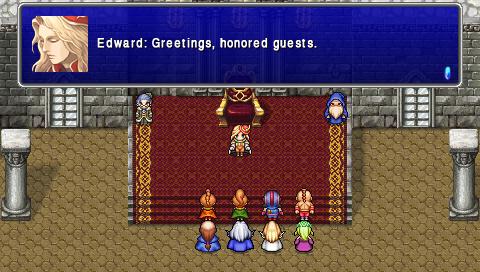12DOVE Verdict
Pros
- +
That FFIV holds up very well
- +
Interlude's walloping challenge
- +
After Years' interesting additions
Cons
- -
So. Many. Random. Battles
- -
Interlude's short length
- -
The lack of substantial extras
Why you can trust 12DOVE
Fellow gamers: We're getting old. Super Mario turned 25 last year, as did The Legend of Zelda earlier this year, and now, Final Fantasy IV is turning 20. To commemorate the occasion, Square Enix has released Final Fantasy IV: The Complete Collection. The compilation includes the original FFIV, Final Fantasy IV: The After Years (a sequel for Japanese mobile phones ported to WiiWare in 2009), and the new Final Fantasy IV – Interlude - which bridges the narrative gap between those two titles.
While a convenient anthology, it's difficult to recommend based solely on the new content because Interlude, the only new substantial piece here, is astonishingly short. It clocks in at just over four hours, with one of those hours being devoted to level-grinding. On the other hand, it also pushes the FFIV formula in an interesting new direction, more resembling a roguelike than a Final Fantasy game. Interlude is essentially a series of hallways with stronger enemies lurking behind each door. There are no inns and item shops are scarce; you have to retrace your steps to be completely healed and restore your MP.
But to back up for just a moment and put Interlude in its proper context, FFIV was, in its day, a revolutionary RPG. It introduced many elements that were retained as staples in the five subsequent Final Fantasy titles, including the active-time battle system. It also asserted that SNES RPGs could tell complex and dramatic stories: FFIV chronicled how the dark knight Cecil came to stop blindly following orders, became a noble paladin, and usurped the throne from a maniacal and corrupt king. For lifetime fans, everything in FFIV is here as you remember it, only with prettier graphics on par with the PSP remakes of FF and FFII.
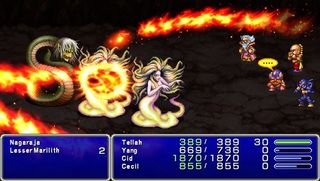
The After Years futzes with some of FFIV's core mechanics, and the ideas at play sound better on paper than they are in practice. Chief among these interesting but ultimately overly complicated changes are the additions of the lunar phase impacting magic/physical attack potency and "band attacks," which are extremely powerful tandem moves that can only be executed by characters with strong emotional bonds. This edition of After Years adds a post-game boss, but given that it was only released on WiiWare in the West, this will likely be many people's first time experiencing the game through and through. Fortunately, like the FFIV reissue also on the UMD, it's much prettier here than in its original incarnation. The After Years benefits much more from this treatment, as it was originally played on cell phones with tiny screens and considerably more limited graphical capabilities and assets to cull from.
Getting back to Interlude, it's the most interesting and perplexing thing in the collection. It exists ostensibly to bridge the narrative arc between the other games, but it's so light on story that that doesn't exactly feel true after completing it. For example, we can assume that Cecil and his white-mage wife Rosa have a kid because their son is featured in After Years. It's hardly a revelation that Rosa became pregnant in order to have a child, but it's given a laughably huge reveal here. The rest of Interlude sticks to RPG-by-numbers plot points: the protagonist awakes from a nightmare, rushes to a giant ceremony, and then an unfortunate event transpires. There are also unexplained doppelgangers, robots, and other loose ends that are never tied up.

Given how obtuse the Final Fantasy series can be, and how indecipherable its titles prove to outsiders, FFIV shouldn't be confused with the alternate-timeline 4 Heroes of Light, and nevermind fighting-game spinoff prequel Dissidia 012 - it's unclear whether this collection is intended as a one-stop source to get your FFIV fix or just a way to give longtime fans one last chance to see all their favorite characters reunite. Interlude has widely been described as a "playable plot element," which hardly suggests there's much meat on its bones. And true to its name, Interlude is brief and ultimately unsatisfying, though an interesting diversion all the same.
You take control of Cecil at level 30 off the bat, and perhaps to compensate for its short running time, Interlude is punishingly difficult. Random battles occur literally every two or three steps, and the two mazes it takes place in are filled with doors that double as bosses that can kill your party with a single hit. Usually your white mage is the first to go, and given the intensity of the combat, Interlude is clearly aimed with the FF expert in mind. Extensive familiarity with FFIV's item and magic systems are a prerequisite for survival - if you're fumbling through menus to find the ideal spell you'll die. The challenge is certainly unfair, but it's also fun in a masochistic sort of way.
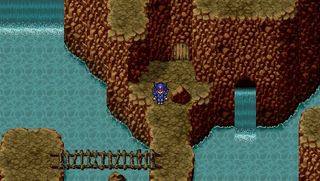
Adding to the unfairness is the fact that save points do not occur frequently. Be prepared to retread lengthy chunks of Interlude a couple of times, as you'll inevitably get stopped in your tracks by an unforeseen boss battle or sucked dry by those goddamned aggro vampire bats.
Part of what tips the scales toward Interlude being intended as a diversion without much dramatic heft is how out-in-plain-sight one if its most bizarre "secrets" is: near the end you'll be granted entrance into the game studio's office. To clarify: Interlude doesn't just break the fourth wall here but instead takes a wrecking ball to it before stomping on the rubble. In an area as large as any other dungeon, your party will have to face down the very people who made the game. It's truly bizarre and seemingly meant as a satirical comment on the industry at large. For example: you'll face down game-developing zombies with loads of HP who are unable to hit their targets (you) and yield next to no XP. And this is after coming across a character that tells you, "There are no weekends in the games industry."

The developer's office being tacked onto Interlude to further pad the runtime just makes the overall game feel that much more like the runt of this collection's litter. It's included for a laugh and a challenge, but just doesn't feel canonical. As such, it alone doesn't make for a compelling incentive to scoop up this collection. What does make the case is the lovingly upgraded siblings elsewhere on the disc - familiar though they may be by now. If you’re not buying the collection primarily for the fantastic core game of FFIV, justifying the purchase becomes difficult. However, FFIV stands completely on its own so if you look at it as a PSP release of one of the greatest RPGs with some extra bonus content thrown in, it’s an easy sell.
Apr 19, 2011
More info
| Genre | Role Playing |
| Description | Final Fantasy IV turns 20, and for its birthday Square had issued a compilation of it with the Japanese mobile-game After Years and the bite-sized new -Interlude- that bridges the gap between them. |
| Franchise name | Final Fantasy |
| UK franchise name | Final Fantasy |
| Platform | "PSP" |
| US censor rating | "Everyone 10+" |
| UK censor rating | "" |
| Release date | 1 January 1970 (US), 1 January 1970 (UK) |
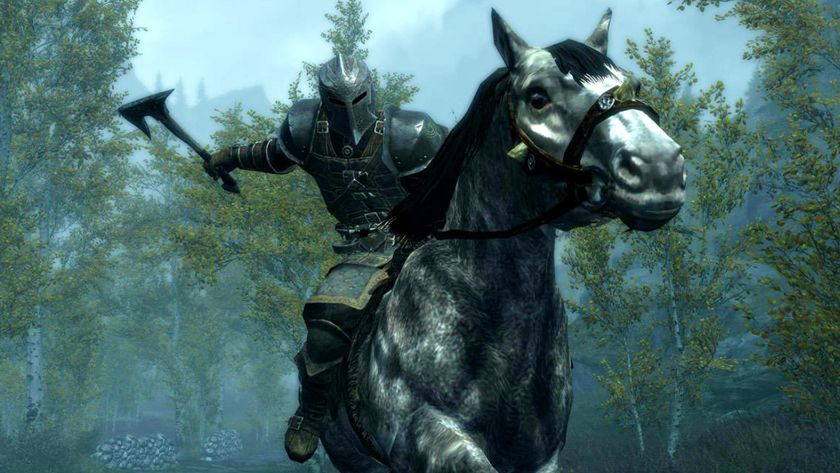
Ex-Bethesda dev turned indie says "good things often happen by accident," like that time Skyrim players convinced themselves the RPG's foxes were leading them to treasure
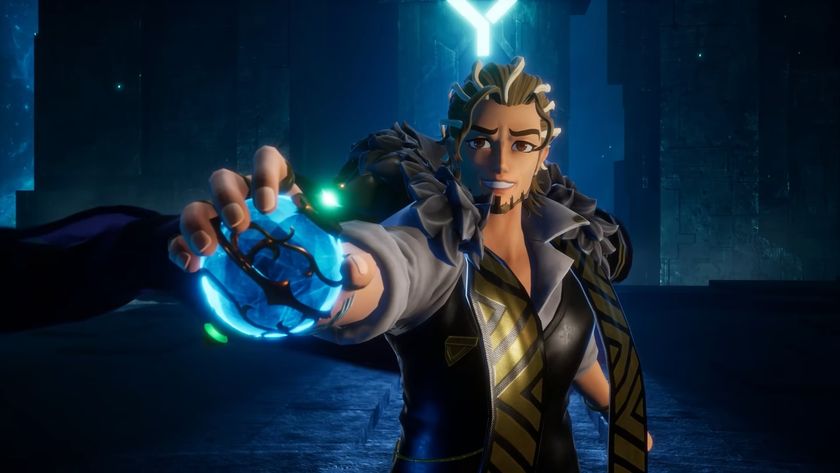
Palworld dev says the studio went dark for months because "the team was getting burnt out from all the social media stuff, I was getting burnt out, our CEO was under attack in Japan"
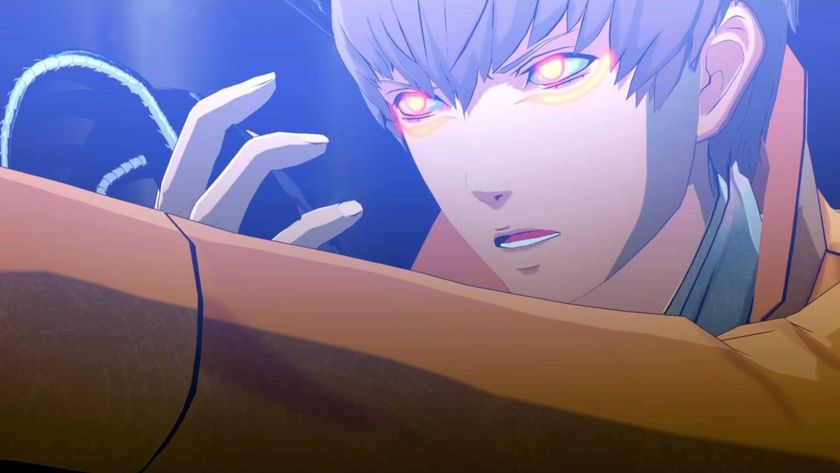
Metaphor: ReFantazio had to dial back an early battle system inspired by a notoriously brutal 2003 JRPG, because 20 years later, players found it "irrational" and "just not fun"
